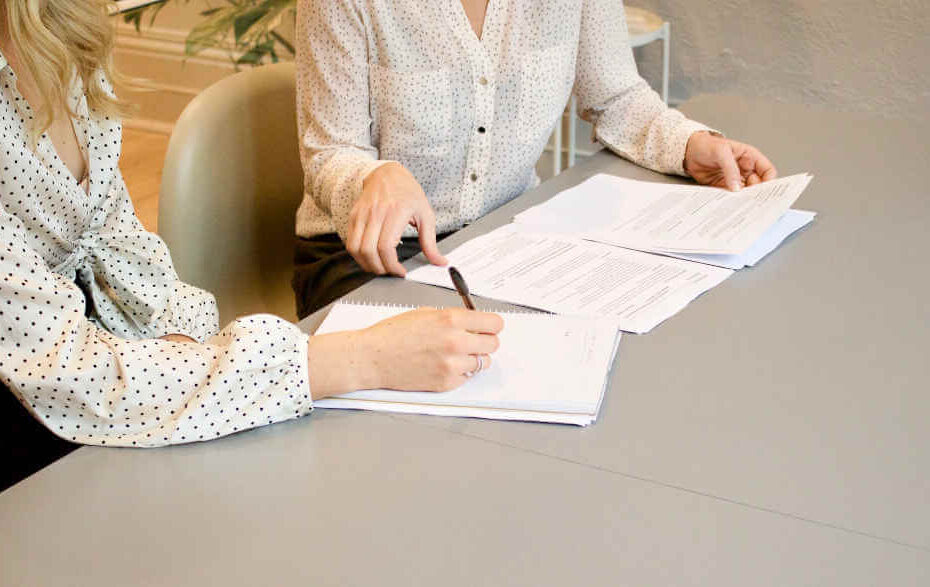Tutoring is a valuable resource to help students with difficult subjects or glose gaps in knowledge. But how often should you meet with your tutor and how long should a tutoring session last? In this article, we would like to answer these questions and provide some tips to create optimal conditions for successful tutoring.
Is once a week tutoring enough?
The question of the frequency of tutoring is an important one that is asked by both tutors and tutoring students alike and depends on various factors. As a rule, it is recommended to take tutoring at least once a week, as this creates a regularity that ensures that students deal with the subject systematically and continuously and thus improve in the long run.
A weekly tutoring session can also help to close gaps in knowledge and improve understanding of complex issues. For students who are having particularly severe difficulties in a subject or need to prepare for an exam, tutoring twice a week may be appropriate. Increasing the frequency of tutoring can help students make faster progress and become more engaged with a subject.
How many hours a week should I tutor?
When answering the question of how many hours per week you should tutor, you should of course always include the student’s individual situation in the decision making process, as school stress or serious illness can be disadvantageous to weekly tutoring. Likewise, the school year plays a major role, as in the first school years often less tutoring is needed. However, the need often increases sharply in higher school years and before important exams such as the final exams. In such cases, it can make sense to take tutoring more than twice a week in order to prepare optimally for the exams.
Regardless of the frequency, the quality of tutoring is also crucial and should be taken into account here. A good tutor should not only have the necessary expertise, but also be pedagogically trained and able to create a pleasant learning atmosphere. If students feel comfortable with their tutor and feel well understood, it is often easier for them to concentrate on the lessons and make progress.
In which school year is tutoring most often taken?

There is no clear answer to this question, as the need for tutoring depends on various aspects. Basically, it can be said that tutoring is in particularly high demand in higher school years, as the school material is more demanding and complex here. Especially before important exams, the need for tutoring often increases sharply, because many students want to prepare as best as possible for the upcoming exams in this phase and fear that without support they will have difficulty performing as required.
But tutoring can also be useful in the first years of school, especially if students have difficulties with reading, writing or math. Early support can therefore help to ensure that no major gaps in knowledge form and that students do not lose touch.
Targeted support in the first years of school can also be helpful in the case of language problems or concentration disorders. In general, however, it can be said that the need for tutoring varies from student to student and depends on many factors. Some students need support early on, while others can get by without tutoring until high school or college. In some cases, the subject also plays a significant role when it comes to the question of tutoring. Subjects such as math or physics tend to require more frequent tutoring, while students in other subjects such as physical education or art often require less to no assistance.
How long should you take tutoring?
In general, it can be said that tutoring should only be taken for a limited period of time in order to provide students with targeted support and enable them to learn and improve their performance on their own.
An important factor in deciding how long to take tutoring is the individual need of the student. Some students may only need a few weeks or months of tutoring to address specific problems or gaps in knowledge. Other students, however, may need longer-term assistance to improve their performance in certain subjects.

Another important aspect is the goal that is pursued with tutoring. If the goal is to pass a certain exam or achieve a certain grade point average, the duration of tutoring can be shorter or longer accordingly. However, if the goal is to gain or deepen basic knowledge in a subject, the duration of tutoring may be longer.
The principle of any tutoring should be essentially to help students learn on their own and improve their performance. Therefore, a trained tutor will provide students with strategies and techniques to learn independently and prepare for exams.
How long do tutoring sessions usually last?
As a rule, a tutoring session should last between 45 and 90 minutes, although this ultimately also depends on the student’s ability to concentrate. For example, if you are already tired after 45 minutes, it makes no sense to book a longer tutoring lesson. On the other hand, the duration also depends on the topics you are working on. Some topics simply require more time than others, which then extends the tutoring session.
Typically, a tutoring session lasts between 60 and 90 minutes. This is because this period is sufficient to provide students with targeted support in a particular subject and give them the opportunity to consolidate what they have learned. A longer duration often leads to fatigue and lack of concentration, which can have a negative impact on learning success.
Another component that influences the duration of a tutoring session is the learning needs of the student. Solving a specific task is sometimes shorter, but if it is about basic knowledge in a subject, then a longer tutoring session can be quite reasonable.
Conclusion
The question posed at the beginning, how often you should meet with a tutor, cannot be answered in general and depends on the individual learning situation. It should also be determined in consultation with the tutor.
As a rule, however, it makes sense to take tutoring at least once a week in order to achieve regular learning progress. If you have difficulties in a particular subject or want to prepare for an exam, it may make sense to take tutoring more often.
How long you should take tutoring depends on your individual needs. If you only want to close gaps in one subject, a limited time is often sufficient. However, if you want to achieve better grades in the long term or improve your language skills, it may be appropriate to take advantage of tutoring over a longer period of time.
A tutoring session should usually last between 45 and 90 minutes, whereby the exact duration depends on various factors and should always be done in consultation with the tutor. Another essential element is the choice of the tutor, because a good tutor should not only be about the necessary expertise, but also about pedagogy. Both should always be present so that you feel comfortable and well understood. Thus, learning is usually easier for you.
Related Article: 10 Tips on How to Get the Most Out of Your Tutoring Session



